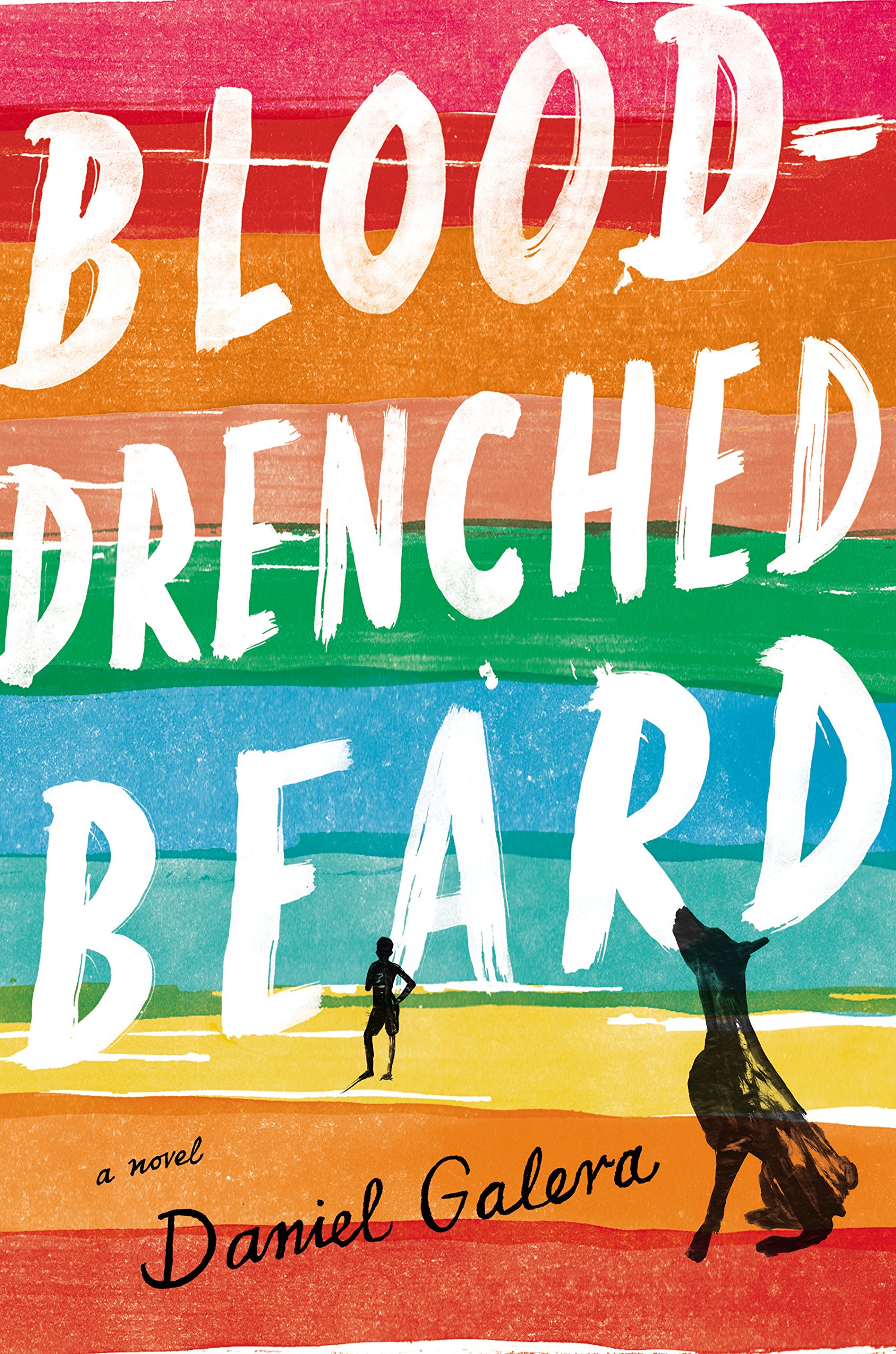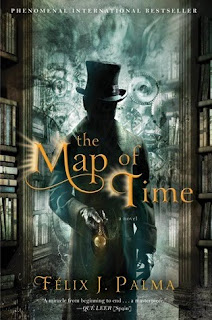Daniel Galera's Blood-Drenched Beard was one of my most-anticipated titles of early 2015. Set during the off-season at a Brazilian beach town, it features an unknown narrator and his dog, Beta, both coming to terms with their grief over the narrator's father's suicide.
Before dying, the narrator's father told him a story about his own father. He had gone to the small fishing village Garopaba and killed at a dance by dozens of people stabbing him to death. But there was never any body found.
After the funeral, the narrator goes to Garopaba, taking Beta with him. He rents a small apartment, swims every day, and slowly starts seeking out information about his grandfather. But this is harder for him than for many people as he has a rare condition that makes it impossible for him to remember people's faces. This may be part of the reason why the narrator is a loner more than he is anything else. All his friendships and relationships seem transitory, ephemeral. This perhaps makes the book seem darker than it is. Actually, there are many moments of humor and happiness here, often coming out in surprising ways.
I've never had a pet before, and I don't generally enjoy stories about people and their pets. However, I really loved the relationship here between the narrator and his dog, Beta. The two grow closer, and after Beta has an accident, you can see the love that exists between them. Beta has more of a personality than many of the other characters, and her personality is kind and loyal.
The ocean is as much a character as anyone else here; it's the water and the beach the narrator escapes to when he is upset, not any person. Perhaps because the ocean changes constantly, every minute, and so the narrator doesn't feel like he has a memory problem while he's there.
I actually don't know why I enjoyed this book so much. The writing style is very casual and easy-going, much like the beach town in which the story is set. There isn't much plot development - it's mostly just the main character meeting people, doing things with them, and then moving on. The story line around his grandfather really only picks up (in a pretty random way) in the last 20% of the book. But I liked the vignette-feel. People respond to grief in so many ways; seeing the narrator's movement back and forth in forming real friendships with people and then moving away, thinking about his father, spending time with his dog, it all felt like a very real portrayal of a man coming to terms with the fact that he will never see his father again. And he can't even remember his father's face to call to mind once in a while.
One annoying thing about this story was the narrator's lack of name. I am not sure why he didn't get a name, since everyone else in the story had one. And since there were no quotation marks to denote conversation (WHY do some authors hate traditional grammatical cues so much?!), it was often difficult to know who was talking, and who was being addressed. But I was always eventually able to figure it out, even if it required some backtracking.
The last 20% of the story left me a little confused, and the book ended very abruptly, seemingly in the middle of a conversation. But even so, I really enjoyed reading this one. It was a great, meaty book to read after the lighter tomes of the holiday season.
Note: This review is based on an advanced reader's copy. I received a free e-book in exchange for this review.
Before dying, the narrator's father told him a story about his own father. He had gone to the small fishing village Garopaba and killed at a dance by dozens of people stabbing him to death. But there was never any body found.
After the funeral, the narrator goes to Garopaba, taking Beta with him. He rents a small apartment, swims every day, and slowly starts seeking out information about his grandfather. But this is harder for him than for many people as he has a rare condition that makes it impossible for him to remember people's faces. This may be part of the reason why the narrator is a loner more than he is anything else. All his friendships and relationships seem transitory, ephemeral. This perhaps makes the book seem darker than it is. Actually, there are many moments of humor and happiness here, often coming out in surprising ways.
I've never had a pet before, and I don't generally enjoy stories about people and their pets. However, I really loved the relationship here between the narrator and his dog, Beta. The two grow closer, and after Beta has an accident, you can see the love that exists between them. Beta has more of a personality than many of the other characters, and her personality is kind and loyal.
The ocean is as much a character as anyone else here; it's the water and the beach the narrator escapes to when he is upset, not any person. Perhaps because the ocean changes constantly, every minute, and so the narrator doesn't feel like he has a memory problem while he's there.
I actually don't know why I enjoyed this book so much. The writing style is very casual and easy-going, much like the beach town in which the story is set. There isn't much plot development - it's mostly just the main character meeting people, doing things with them, and then moving on. The story line around his grandfather really only picks up (in a pretty random way) in the last 20% of the book. But I liked the vignette-feel. People respond to grief in so many ways; seeing the narrator's movement back and forth in forming real friendships with people and then moving away, thinking about his father, spending time with his dog, it all felt like a very real portrayal of a man coming to terms with the fact that he will never see his father again. And he can't even remember his father's face to call to mind once in a while.
One annoying thing about this story was the narrator's lack of name. I am not sure why he didn't get a name, since everyone else in the story had one. And since there were no quotation marks to denote conversation (WHY do some authors hate traditional grammatical cues so much?!), it was often difficult to know who was talking, and who was being addressed. But I was always eventually able to figure it out, even if it required some backtracking.
The last 20% of the story left me a little confused, and the book ended very abruptly, seemingly in the middle of a conversation. But even so, I really enjoyed reading this one. It was a great, meaty book to read after the lighter tomes of the holiday season.
Note: This review is based on an advanced reader's copy. I received a free e-book in exchange for this review.















 P
P


